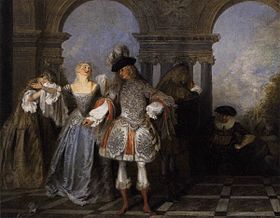
An actor (often actress for women; see terminology) is a person who portrays a character in a performance. The actor performs "in the flesh" in the traditional medium of the theatre or in modern mediums such as film, radio, and television. The analogous Greek term is ????????? (hupokrit?s), literally "one who answers". The actor's interpretation of their role—the art of acting—pertains to the role played, whether based on a real person or fictional character. Interpretation occurs even when the actor is "playing themselves", as in some forms of experimental performance art.
Formerly, in some societies, only men could become actors, and women's roles were generally played by men or boys. When used for the stage, women occasionally played the roles of prepubescent boys.
Contents
Terminology
After 1660 in England, when women first started to appear on stage, the terms actor or actress were initially used interchangeably for female performers, but later, influenced by the French actrice, actress became the commonly used term for women in theater and film. The etymology is a simple derivation from actor with -ess added. When referring to groups of performers of both sexes, actors is preferred. Actor is also used before the full name of a performer as a gender-specific term.
Within the profession, the re-adoption of the neutral term dates to the post-war period of the 1950 and '60s, when the contributions of women to cultural life in general were being reviewed. When The Observer and The Guardian published their new joint style guide in 2010, it stated "Use for both male and female actors; do not use actress except when in name of award, e.g. Oscar for best actress." The guide's authors stated that "actress comes into the same category as authoress, comedienne, manageress, 'lady doctor', 'male nurse' and similar obsolete terms that date from a time when professions were largely the preserve of one sex (usually men)." (See male as norm). "As Whoopi Goldberg put it in an interview with the paper: 'An actress can only play a woman. I'm an actor – I can play anything.'" The UK performers' union Equity has no policy on the use of "actor" or "actress". An Equity spokesperson said that the union does not believe that there is a consensus on the matter and stated that the "...subject divides the profession." In 2009, the Los Angeles Times stated that "Actress" remains the common term used in major acting awards given to female recipients (e.g., Academy Award for Best Actress).
With regard to the cinema of the United States, the gender-neutral term "player" was common in film in the silent film era and the early days of the Motion Picture Production Code, but in the 2000s in a film context, it is generally deemed archaic. However, "player" remains in use in the theatre, often incorporated into the name of a theatre group or company, such as the American Players, the East West Players, etc. Also, actors in improvisational theatre may be referred to as "players".
History
The first recorded case of a performing actor occurred in 534 BC (though the changes in calendar over the years make it hard to determine exactly) when the Greek performer Thespis stepped onto the stage at the Theatre Dionysus to become the first known person to speak words as a character in a play or story. Prior to Thespis' act, Grecian stories were only expressed in song, dance, and in third person narrative. In honor of Thespis, actors are commonly called Thespians. The exclusively male actors in the theatre of ancient Greece performed in three types of drama: tragedy, comedy, and the satyr play. Western theatre developed and expanded considerably under the Romans. The theatre of ancient Rome was a thriving and diverse art form, ranging from festival performances of street theatre, nude dancing, and acrobatics, to the staging of situation comedies, to high-style, verbally elaborate tragedies.
As the Western Roman Empire fell into decay through the 4th and 5th centuries, the seat of Roman power shifted to Constantinople and the Byzantine Empire. Records show that mime, pantomime, scenes or recitations from tragedies and comedies, dances, and other entertainments were very popular. From the 5th century, Western Europe was plunged into a period of general disorder. Small nomadic bands of actors traveled around Europe throughout the period, performing wherever they could find an audience; there is no evidence that they produced anything but crude scenes. Traditionally, actors were not of high status; therefore, in the Early Middle Ages, traveling acting troupes were often viewed with distrust. Early Middle Ages actors were denounced by the Church during the Dark Ages, as they were viewed as dangerous, immoral, and pagan. In many parts of Europe, traditional beliefs of the region and time period meant actors could not receive a Christian burial.
In the Early Middle Ages, churches in Europe began staging dramatized versions of biblical events. By the middle of the 11th century, liturgical drama had spread from Russia to Scandinavia to Italy. The Feast of Fools encouraged the development of comedy. In the Late Middle Ages, plays were produced in 127 towns. These vernacular Mystery plays often contained comedy, with actors playing devils, villains, and clowns. The majority of actors in these plays were drawn from the local population. Amateur performers in England were exclusively male, but other countries had female performers.
There were a number of secular plays staged in the Middle Ages, the earliest of which is The Play of the Greenwood by Adam de la Halle in 1276. It contains satirical scenes and folk material such as faeries and other supernatural occurrences. Farces also rose dramatically in popularity after the 13th century. At the end of the Late Middle Ages, professional actors began to appear in England and Europe. Richard III and Henry VII both maintained small companies of professional actors. Beginning in the mid-16th century, Commedia dell'arte troupes performed lively improvisational playlets across Europe for centuries. Commedia dell'arte was an actor-centred theatre, requiring little scenery and very few props. Plays were loose frameworks that provided situations, complications, and outcome of the action, around which the actors improvised. The plays utilised stock characters. A troupe typically consisted of 13 to 14 members. Most actors were paid a share of the play's profits roughly equivalent to the sizes of their roles.
Renaissance theatre derived from several medieval theatre traditions, such as the mystery plays, "morality plays", and the "university drama" that attempted to recreate Athenian tragedy. The Italian tradition of Commedia dell'arte, as well as the elaborate masques frequently presented at court, also contributed to the shaping of public theatre. Since before the reign of Elizabeth I, companies of players were attached to households of leading aristocrats and performed seasonally in various locations. These became the foundation for the professional players that performed on the Elizabethan stage.
The development of the theatre and opportunities for acting ceased when Puritan opposition to the stage banned the performance of all plays within London. Puritans viewed the theatre as immoral. The re-opening of the theatres in 1660 signaled a renaissance of English drama. English comedies written and performed in the Restoration period from 1660 to 1710 are collectively called "Restoration comedy". Restoration comedy is notorious for its sexual explicitness. At this point, women were allowed for the first time to appear on the English stage, exclusively in female roles. This period saw the introduction of the first professional actresses and the rise of the first celebrity actors.
19th century
In the 19th century, the negative reputation of actors was largely reversed, and acting became an honored, popular profession and art. The rise of the actor as celebrity provided the transition, as audiences flocked to their favorite "stars." A new role emerged for the actor-managers, who formed their own companies and controlled the actors, the productions, and the financing. When successful, they built up a permanent clientele that flocked to their productions. They could enlarge their audience by going on tour across the country, performing a repertoire of well-known plays, such as those by Shakespeare. The newspapers, private clubs, pubs, and coffee shops rang with lively debates evaluating the relative merits of the stars and the productions. Henry Irving (1838-1905) was the most successful of the British actor-managers. Irving was renowned for his Shakespearean roles, and for such innovations as turning out the house lights so that attention could focus more on the stage and less on the audience. His company toured across Britain, as well as Europe and the United States, demonstrating the power of star actors and celebrated roles to attract enthusiastic audiences. His knighthood in 1895 indicated full acceptance into the higher circles of British society.
20th century
By the early 20th century, the economics of large-scale productions displaced the actor-manager model. It was too hard to find people who combined a genius at acting as well as management, so specialization divided the roles as stage managers and later theatre directors emerged. Financially, much larger capital was required to operate out of a major city. The solution was corporate ownership of chains of theatres, such as by the Theatrical Syndicate, Edward Laurillard, and especially The Shubert Organization. By catering to tourists, theaters in large cities increasingly favored long runs of highly popular plays, especially musicals. Big name stars became even more essential.
Techniques
- Classical acting is an umbrella term for a philosophy of acting that integrates the expression of the body, voice, imagination, personalizing, improvisation, external stimuli, and script analysis. It is based on the theories and systems of select classical actors and directors including Konstantin Stanislavski and Michel Saint-Denis.
- In Stanislavski's system, also known as Stanislavski's method, actors draw upon their own feelings and experiences to convey the "truth" of the character they portray. Actors puts themselves in the mindset of the character, finding things in common to give a more genuine portrayal of the character.
- Method acting is a range of techniques based on for training actors to achieve better characterizations of the characters they play, as formulated by Lee Strasberg. Strasberg's method is based upon the idea that to develop an emotional and cognitive understanding of their roles, actors should use their own experiences to identify personally with their characters. It is based on aspects of Stanislavski's system. Other acting techniques are also based on Stanislavski's ideas, such as those of Stella Adler and Sanford Meisner, but these are not considered "method acting".
- Meisner technique requires the actor to focus totally on the other actor as though he or she is real and they only exist in that moment. This is a method that makes the actors in the scene seem more authentic to the audience. It is based on the principle that acting finds its expression in people's response to other people and circumstances. Is it based on Stanislavski's system.
As opposite sex
Formerly, in some societies, only men could become actors. In ancient Greece and ancient Rome and the medieval world, it was considered disgraceful for a woman to go on stage; this belief persisted until the 17th century in Venice. In the time of William Shakespeare, women's roles were generally played by men or boys.
When an eighteen-year Puritan prohibition of drama was lifted after the English Restoration of 1660, women began to appear on stage in England. Margaret Hughes is oft credited as the first professional actress on the English stage. This prohibition ended during the reign of Charles II in part because he enjoyed watching actresses on stage. The first occurrence of the term actress was in 1608 according to the OED and is ascribed to Middleton. In the 19th century many viewed women in acting negatively, as actresses were often courtesans and associated with promiscuity. Despite these prejudices, the 19th century also saw the first female acting "stars", most notably Sarah Bernhardt.
Request Movie Now
Watch movie Actor online on Amazon
Watch movie Actor online
Watch The Movie On Prime
Chhoti Bahu Full HD Movie Download

Sampoorna Ramayana Full HD Movie Download
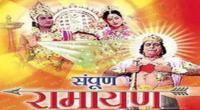
Baat Ek Raat Ke Full HD Movie Download
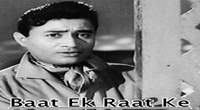
Wake Up Sid Full HD Movie Download

Accident on Hill Road (2009) Full HD Movie Download
.jpg)
Asha Jyoti Full HD Movie Download

Manal Kaiyru Full HD Movie Download

Haage Summane Full HD Movie Download
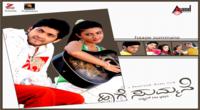
Tumaku Parunita Bhuli Full HD Movie Download
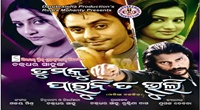
Nai Rat Nai Bat Full HD Movie Download

Chandipriya Full HD Movie Download

Harold and Kumar Escape from Guantanamo Bay Full HD Movie Download

Athirathram Full HD Movie Download

Nevada Heat Full HD Movie Download

Bharatamlo Arjunudu Full HD Movie Download
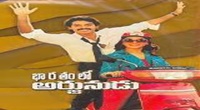
Padamati Sandhya Ragam Full HD Movie Download

Bangaru Panjaram Full HD Movie Download
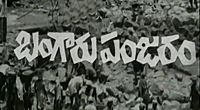
Rajanandini Full HD Movie Download
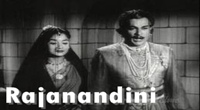
Ninaivil Nindraval Full HD Movie Download
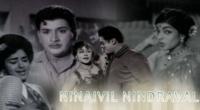
Palay Khan Full HD Movie Download
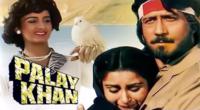
New York Full HD Movie Download


Download latest Movie from bollywood
Request for Download movie Actor
- Bollywood movies
- Latest Bollywood movies
- Download all bengali movies
- Download all bhojpuri movies
- Download all english movies
- Download all gujarati movies
- Download all hindi movies
- Download all kannada movies
- Download all malayalam movies
- Download all marathi movies
- Download all oriya movies
- Download all punjabi movies
- Download all tamil movies
- Download all telugu movies
- Bollywood action movies
- Bollywood adventure movies
- Bollywood animation movies
- Bollywood classical movies
- Bollywood comedy movies
- Bollywood crime movies
- Bollywood devotional movies
- Bollywood documentary movies
- Bollywood drama movies
- Bollywood family movies
- Bollywood fantasy movies
- Bollywood historical movies
- Bollywood history movies
- Bollywood horror movies
- Bollywood musical movies
- Bollywood mystery movies
- Bollywood mythological movies
- Bollywood patriotic movies
- Bollywood romance movies
- Bollywood romantic movies
- Bollywood sci-fi movies
- Bollywood social movies
- Bollywood spiritual movies
- Bollywood sports movies
- Bollywood suspense movies
- Bollywood thriller movies
- Bollywood war movies
- Hot actress list
- Hot gujarati actress list
- Hot tamil actress list
- Hot bhojpuri actress list
- Hot assam actress list
- Hot bihari actress list
- Hot jammu and kashmir actress list
- Hot gujarati actress list
- Hot haryana actress list
- Hot konkani actress list
- Hot marathi actress list
- Hot odia actress list
- Hot punjabi actress list
- Hot rajasthani actress list
- Hot kannada actress list
- Hot malayalam actress list
- Hot telugu actress list
- Hot tulu actress list
- Hot Actress list from Indian city
- Hot actress list from ahmedabad
- Hot actress list from alappuzha
- Hot actress list from bangalore
- Hot actress list from bangalore
- Hot actress list from bhopal
- Hot actress list from chandigarh
- Hot actress list from chennai
- Hot actress list from guwahati
- Hot actress list from hyderabad, india
- Hot actress list from indore
- Hot actress list from jaipur
- Hot actress list from kannur
- Hot actress list from kochi
- Hot actress list from kolkata
- Hot actress list from kollam
- Hot actress list from kottayam
- Hot actress list from kozhikode
- Hot actress list from lucknow
- Hot actress list from madurai
- Hot actress list from mangalore
- Hot actress list from mumbai
- Hot actress list from mysore
- Hot actress list from new delhi
- Hot actress list from patna
- Hot actress list from pune
- Hot actress list from thiruvananthapuram
- Hot actress list from thrissur
- Hot actress list from tiruchirappalli
- Hot actress list from vijayawada
- Hot actress list from visakhapatnam
- All Bollywood Movies
- Bollywood Celeb
- >Art Director
- >Audiography
- >Background Music
- >Banner
- >Choreographer
- >Cinematographer
- >Costume Designer
- >Dialogue Writer
- >Director
- >Distributor
- >Editor
- >Executive Producer
- >Hair Stylist
- >Lyricist
- >Music Director
- >Photographer
- >Playback Singers
- >Presenter
- >Producer
- >Production Company
- >Production Designer
- >Screenplay
- >Singer
- >Sound
- >Actor
- >Story Writer
- >Studio
- >Video Director
- >Miscellaneous
- >Publicity (pro)
- >Web Creator
- >Production Labs
- >Publicity Design
- >Publicity Stills
- >Writer
- >Miscellaneous Artists
- >Visual Effects
- >Reporter
- >Music Company
- >Shooting Studios
- >Picturised On
- >Line Producer
- >Co Producer
- >Asst Director
- >Casting Director
- >Cinematography
- >Choreography
- >Dialouge
- >Editing
- >Lyrics
- >Music
- >Story
- >Playback Singer Female
- >Playback Singer Male
- >Actor In A Comic Role (male/female)
- >Child Artiste
- >Ensemble Cast
- >Actor Popular Choice (male)
- >Actor Popular Choice (female)
- >Sa Re Ga Ma Pa Song Of The Year
- >Actor In Supporting Role
- >Actress In Supporting Role
- >Actor In Leading Role
- >Art Direction
- >Actress In Leading Role
- >Sound Recording
- >Costume Design
- >Special Effects
- >Action
- >Actor In A Negative Role
- >Lifetime Achievement Award
- >Cinematic Exellence (director)
- >Cinematic Exellence (male)
- >Cinematic Exellence (female)
- >International Male Icon
- >International Female Icon
- >Actor In A Supporting Role (male)
- >Actor In A Supporting Role (female)
- >Actor In A Comic Role
- >Playback Singer (male)
- >Playback Singer (female)
- >Most Promising Debut (female)
- >Most Promising Debut (male)
- >Most Promising Director
- >Sound Design
- >Lifetime Jodi
- >Marketed Film
- >Jury Award For Best Actor
- >Jury Award For Best Actress
- >Jury Award For Best Film
- >Jury Award For Best Director
- >Playback Singer(male)
- >Lifetime Acheivement Award (male)
- >Excellence Award
- >Jodi Award
- >Performer Of The Year
- >Presented By